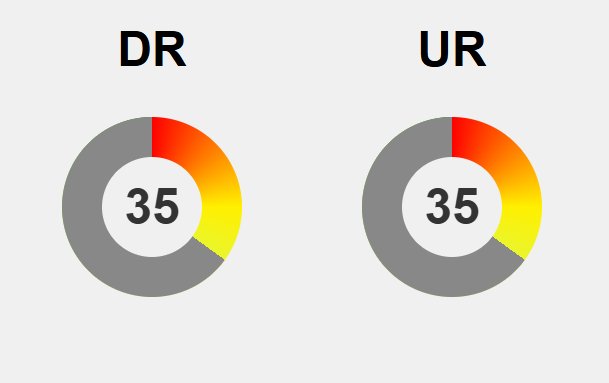Step into the world of Karl Marx, a visionary whose ideas shattered the foundations of capitalism and ignited revolutionary change. Born amidst Europe’s industrial turmoil, Marx observed the relentless exploitation and widening wealth gap, fueling his critique of a system driven by greed and inequality. His analysis reveals how surplus value, class struggle, and alienation perpetuate systemic injustice, urging us to question who truly holds power. But how relevant are his revolutionary visions today? In an era marked by rising economic disparities, corporate dominance, and global crises, Marx’s insights continue to resonate, inspiring activism, scholarly debates, and cultural reflections. His call for collective action challenges us to rethink ownership, resource distribution, and social justice. Could Marx’s legacy be the key to envisioning a more equitable future? This compelling exploration invites us to reflect on the enduring power of revolutionary ideas to transform society.
Unveiling the Roots of Marx’s Revolutionary Perspective
Imagine a world where economic inequality is impossible to ignore, with a small elite controlling most of the wealth while the majority struggles just to get by. This stark reality caught Karl Marx’s attention early on. Born in 1818 in Trier, Germany, Marx grew up witnessing the widening gap between rich and poor, especially during Europe’s rapid industrialization. His background in philosophy, law, and economics equipped him with the tools to critically analyze these societal shifts and their implications.
Marx’s ideas didn’t develop in a vacuum. They were shaped by the intellectual currents of his time, particularly German idealism and classical economics. He was influenced by Hegel’s dialectical method, which emphasized conflict and change as driving forces in history. Marx adapted this into his materialist framework, shifting focus from ideas to tangible economic conditions. He believed that material circumstances—such as ownership of resources and economic relationships—were the true engines behind societal development.
The social upheavals of the 19th century further fueled his thinking. Europe was experiencing revolutionary protests, worker strikes, and growing urban poverty. Witnessing these struggles firsthand, Marx saw these protests as symptoms of a deeper systemic problem—a capitalist system built on exploitation and alienation. He recognized that beneath the surface unrest lay a fundamental conflict rooted in economic inequality and the unequal distribution of power.
His observations led him to develop a revolutionary critique of capitalism. Marx argued that private ownership and free markets serve to widen the divide between the wealthy and the working class. He saw capitalism as inherently exploitative, with workers producing more value than they are paid—creating surplus value that profits capitalists and perpetuates inequality. This dynamic, Marx believed, makes systemic crisis unavoidable, as contradictions within capitalism drive economic downturns and social unrest.
Marx’s insights were also shaped by the philosophical and social ideas of the time. He combined Hegelian dialectics with a materialist view of history, emphasizing that class struggle is the motor of societal change. His exposure to the harsh realities faced by industrial workers convinced him that systemic transformation wasn’t just desirable, but inevitable. His work aimed to expose these injustices and inspire collective action to forge a more equitable society.
This context set the stage for Marx’s most influential writings, including “The Communist Manifesto” and “Das Kapital.” These works aimed to reveal the flaws of capitalism and advocate for revolutionary change. Understanding the social and intellectual environment that shaped Marx helps explain why his ideas continue to resonate today, offering a powerful lens to critique and rethink the structures that sustain inequality.
The Intellectual and Social Forces Shaping Marx’s Ideas
Karl Marx’s ideas didn’t develop in a vacuum; they were shaped by a rich tapestry of intellectual traditions and the turbulent social realities of his time. Philosophically, he drew deeply from German idealism, especially Hegel’s dialectical method, which emphasized conflict and transformation as driving forces in history. Marx transformed this idea into his materialist framework, shifting the focus from abstract ideas to tangible economic conditions. He believed that material circumstances—such as who owns resources and how economic relationships are structured—are the true engines behind societal change, not ideas alone.
On the economic front, Marx engaged with the works of classical political economists like Adam Smith and David Ricardo. While these thinkers laid important groundwork for understanding markets and wealth, Marx saw their analysis as incomplete. He critiqued their failure to recognize how exploitation of workers underpins the accumulation of capital. Marx introduced the concept of surplus value—how capitalists profit by paying workers less than the value they produce—and argued that this systemic extraction is the root cause of inequality, driving the concentration of wealth and power.
The social upheavals of the 19th century played a crucial role in shaping Marx’s thinking. Rapid industrialization, urbanization, and widespread protests exposed the flaws of the existing system. Workers faced poor conditions, low wages, and little political influence, revealing the deep contradictions within capitalism. Witnessing these struggles firsthand, Marx saw exploitation and alienation as symptoms of a broader systemic crisis—a system built on greed and inequality that was destined to collapse under its own contradictions.
These social realities were complemented by the revolutionary ideas circulating across Europe. From the 1830s onward, protests, uprisings, and worker movements demonstrated that oppressed groups could challenge authority. Marx interpreted these moments as practical illustrations of class struggle, reinforcing his belief that societal change was not only necessary but inevitable. The collective actions of the oppressed were, in his view, signs that the existing order was unsustainable and that a fundamental transformation was on the horizon.
All these influences—philosophical, economic, and social—came together in Marx’s revolutionary worldview. He synthesized dialectical materialism with a keen analysis of class conflict, creating a comprehensive critique of capitalism. His exposure to the struggles and ideas of his era gave his work both depth and urgency, laying the groundwork for a revolutionary theory that challenged the very foundations of society. This interconnected web of influences continues to underpin his enduring legacy today.
Fundamental Principles of Marxist Thought: Class, Surplus, and Critique
At the core of Marx’s critique is the idea that history is driven by ongoing class struggle. He saw society divided mainly into two groups: the bourgeoisie, who own the means of production, and the proletariat, who sell their labor to survive. This division isn’t just about different roles; it creates a persistent conflict of interest. Owners aim to maximize profits, often at the expense of workers, leading to exploitation and alienation. Marx believed this struggle would eventually push society toward revolution, with workers uniting to overthrow the existing order.
A fundamental concept in Marxist theory is surplus value. Marx observed that workers produce more value through their labor than they are paid in wages. The difference—the surplus value—is captured by capitalists as profit. This process of extracting surplus value is the engine of exploitation, allowing owners to amass wealth while keeping workers impoverished. Over time, this dynamic widens economic disparities, reinforcing systemic inequality and social injustice.
Marx argued that capitalism is inherently contradictory. While it fuels innovation and creates wealth, it also breeds economic crises like overproduction, unemployment, and downturns. These crises aren’t accidental but stem from the system’s internal logic—pursuit of profit leads to overextension and destabilization. Marx believed that these contradictions would intensify, eventually causing capitalism’s collapse and paving the way for a new social order rooted in equality.
Another key idea is the alienation of workers. Under capitalism, workers are disconnected from the products they make, the labor process, and each other. Their work becomes a means of survival rather than a source of fulfillment or pride. This estrangement deepens the divide, making workers more aware of shared interests and more likely to unite against their oppressors. Alienation, in Marx’s view, fuels revolutionary consciousness and collective action.
Finally, Marx believed that the working class holds the potential to overthrow capitalism. As exploitation and crises escalate, workers become more conscious of their common plight. Their collective effort to dismantle private ownership and establish a society based on shared resources and social equality becomes both inevitable and necessary. This isn’t just an ideal but a logical response to capitalism’s internal contradictions.
Together, these ideas form the foundation of Marxist theory—an unflinching critique of capitalism that highlights systemic flaws and points toward revolutionary change. They challenge us to see beyond surface-level issues and question the structures that sustain inequality, urging a reevaluation of how society organizes wealth, power, and labor.
Understanding these core principles underscores the importance of awareness and collective action in pursuing social change. For those interested in exploring how Marxist theory applies to contemporary economic issues, examining Marxist economic analysis can provide valuable insights into the ongoing relevance of these ideas.
Marx’s Enduring Influence on Modern Societies and Movements
Marx’s ideas didn’t fade with history; they continue to shape today’s social and political landscape in powerful ways. From grassroots activism to academic debates, his critique of capitalism fuels ongoing discussions about economic inequality and social justice. Movements advocating for fair wages, better working conditions, and wealth redistribution often draw on concepts like class struggle and surplus value to analyze systemic issues. These ideas help explain why power and resources remain concentrated despite economic growth and technological progress, revealing the persistent structures that uphold inequality.
In recent years, the rise of movements demanding greater economic fairness has kept Marx’s critique relevant. Campaigns for higher wages, stronger labor rights, and more equitable wealth distribution echo his call to challenge entrenched economic interests. Debates around corporate influence, tax policies, and the role of capital in politics frequently reference Marx’s insights into how capital accumulates and perpetuates inequality. These discussions highlight that, even in modern economies, systemic injustice isn’t just a relic of the past but an ongoing struggle.
Scholars continue to reinterpret Marx’s work in the context of contemporary issues like globalization and the digital economy. As automation and online platforms reshape labor markets, his focus on worker alienation and surplus value remains highly relevant. Marx’s critique provides a lens to understand how new economic systems may deepen existing disparities or create new forms of exploitation. This ongoing relevance pushes us to consider alternative models rooted in collective ownership and social equity, especially as wealth becomes increasingly concentrated in a handful of tech giants and multinational corporations.
Critics point out that some regimes claiming to follow Marx’s ideas ended up authoritarian or inefficient, casting doubt on the practicality of his visions. Nonetheless, many still find value in his fundamental critique of capitalism’s tendencies toward inequality, crises, and exploitation. His analysis offers a framework for understanding the roots of social injustice and serves as a foundation for reform efforts aimed at creating fairer economic systems. His ideas challenge us to rethink the structures that sustain systemic disparities, inspiring ongoing efforts for change.
Beyond politics and economics, Marx’s influence extends into culture and arts. Films like “Fight Club” and “The Matrix” explore themes of alienation, societal control, and rebellion—echoing his warnings about societal discontent. Writers and artists incorporate his critique to challenge viewers and readers to question the systems shaping their lives. This cultural presence keeps Marx’s revolutionary spirit alive, inspiring new generations to think critically about the world and their place within it.
Today, Marx’s insights remain a vital tool for understanding systemic inequalities worldwide. Whether in policy debates, activism, or cultural expressions, his analysis provides a lens to question who holds power and resources—and why resistance to change persists. As economic disparities deepen and new challenges emerge, engaging with Marx’s ideas can help us imagine and build more equitable futures. His work encourages collective reflection and action, reminding us that societal transformation is possible when rooted in understanding and shared purpose.
Reflecting on Marx’s Legacy: Insights, Challenges, and the Path Forward
Marx’s revolutionary ideas continue to challenge us to look beyond surface issues and question the fundamental structures shaping our society. His critique of capitalism’s flaws—exploitation, wealth concentration, and recurring crises—remains strikingly relevant today. These insights push us to see that inequality is not merely a matter of individual choices but is rooted in how economic systems are designed and maintained. Recognizing this encourages a mindset that systemic change is both necessary and possible, especially when driven by collective action and shared purpose.
The persistent gaps in income, opportunity, and influence, along with the dominance of powerful interests, echo Marx’s observations. His emphasis on class struggle as a driver of history offers a compelling lens for understanding ongoing social tensions. This perspective invites us to rethink ownership, resource distribution, and the role of labor in society. By questioning who holds power and why resistance to reform persists, we can better identify pathways toward more equitable systems that serve the many, not just the few.
Despite the mixed legacy of regimes claiming to follow Marx’s ideas, his core critique remains powerful. It’s not about endorsing a specific political blueprint but about understanding the systemic roots of inequality and injustice. His analysis calls us to examine the structures that uphold disparity and to consider alternative models rooted in social ownership and collective well-being. These ideas continue to inspire debates about how to build economies that prioritize human needs over profit, pushing for change rooted in fairness and shared prosperity.
Culturally, Marx’s influence endures through art, literature, and popular culture. Films like “Fight Club” and “The Matrix” explore themes of alienation and rebellion, echoing his warnings about societal discontent and control. Artists and thinkers draw on his critique to challenge complacency and inspire critical reflection. This ongoing cultural dialogue keeps the revolutionary spirit alive, encouraging new generations to question the status quo and imagine a more just world.
Looking forward, engaging with Marx’s insights can help us navigate today’s complex challenges—climate change, technological disruption, and global inequality. His focus on collective ownership and social justice offers a foundation for creating sustainable, inclusive economic models. By understanding the systemic nature of these issues, we can foster awareness and inspire action. Marx’s ideas serve as a reminder that societal transformation is within reach when people unite around shared goals and work together for a fairer future.




